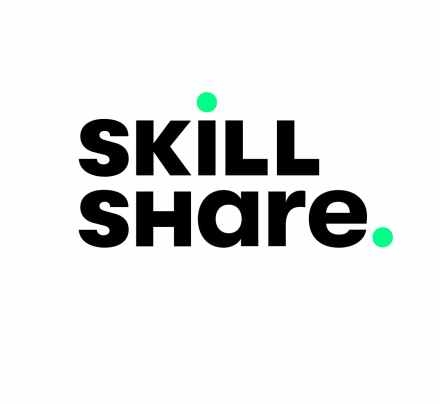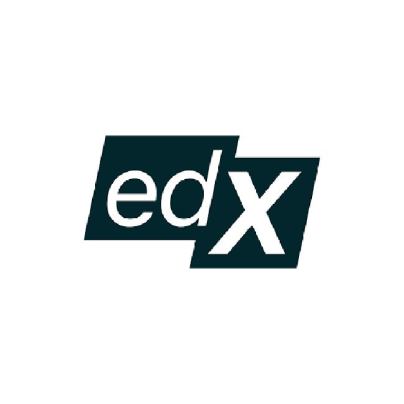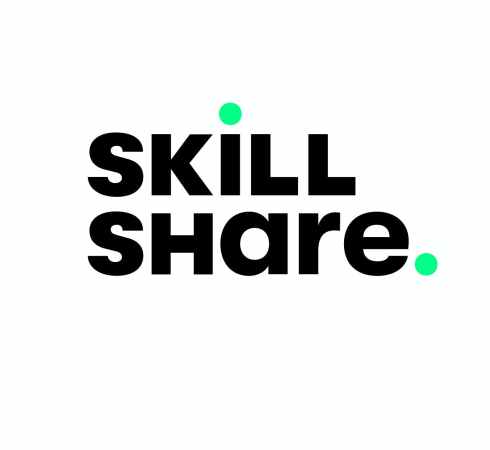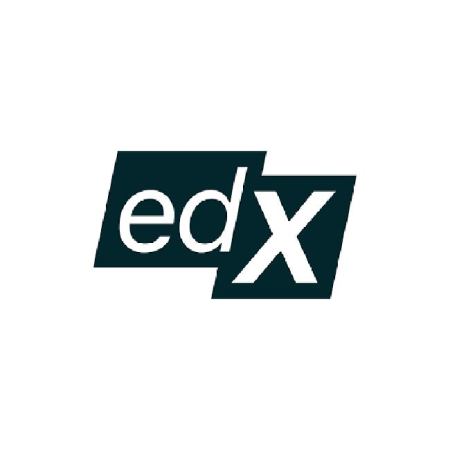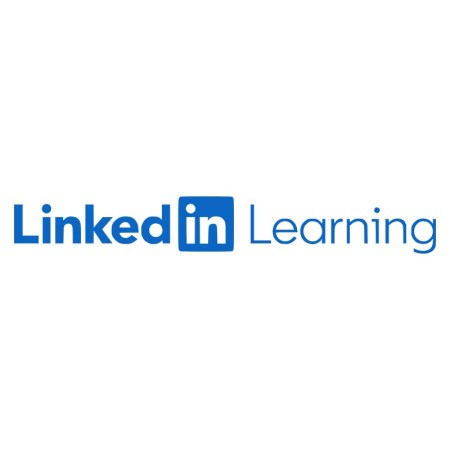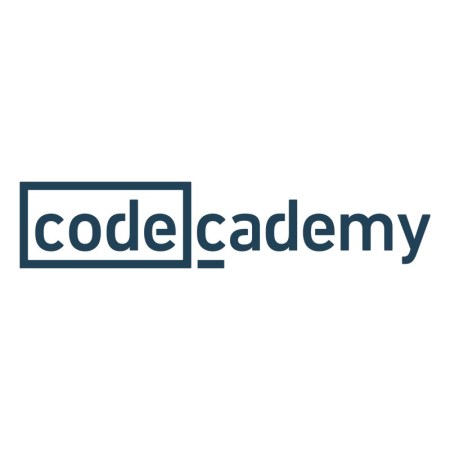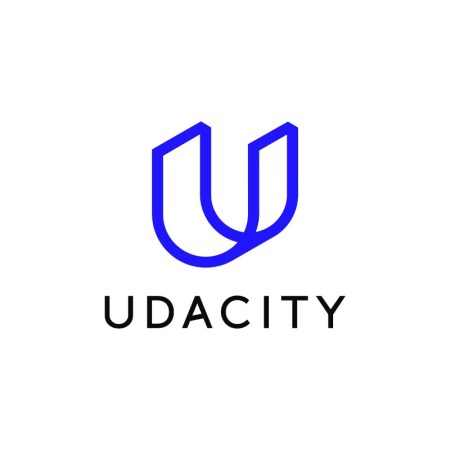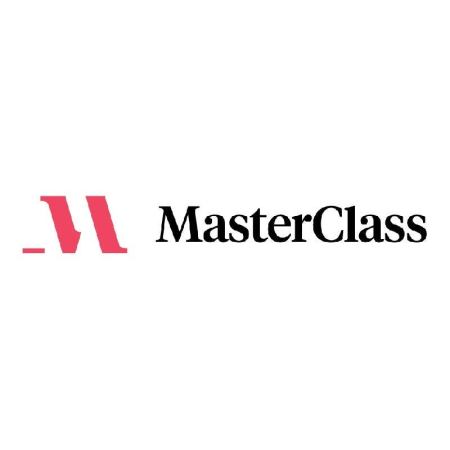
We may earn revenue from the products available on this page and participate in affiliate programs. Learn More ›
Of all the online learning platforms out there, few offer the selection of classes and affordability of Udemy. But while Udemy may be one of the premier learning platforms on the web, it isn’t the only option out there. Other quality online learning providers offer classes and content not found on Udemy. Some online course platforms even allow students to earn college credits and professional certifications. Although Udemy is well regarded for its instructors, other platforms feature classes taught by renowned professionals and celebrities. And while Udemy sells mainly complete courses, other platforms cater to students by giving them free access to specific lessons. Ahead, students can learn more about the best Udemy alternatives and what they have to offer.
- BEST OVERALL: Skillshare
- BEST FOR ADVANCED LEARNING: edX
- BEST BANG FOR THE BUCK: Coursera
- BEST FOR PROFESSIONALS: LinkedIn Learning
- BEST FOR STUDENTS: Khan Academy
- BEST FOR CODING: Codecademy
- BEST FOR TECH: Udacity
- BEST FOR CREATIVES: CreativeLive
- ALSO CONSIDER: MasterClass

What is Udemy?
Udemy is a platform that offers online virtual classes for lifelong learning. It’s one of the largest such sites, with hundreds of thousands of classes available. The site’s classes are wide-ranging, covering topics from cooking to pet training to selling real estate. Prices span from free to as much as $200 per course. Udemy’s course offerings vary in length from as little as 45 minutes to up to 17 hours. Students can purchase courses individually or subscribe to a plan called Udemy Personal that costs $30 a month and grants access to a large chunk of Udemy’s courses.
Since Udemy is not an accredited institution, most of its content does not allow students to earn college credits or certifications. This limitation, coupled with its eclectic mix of classes, makes the platform a good choice mainly for hobbyists looking to grow their knowledge and abilities in a particular area of interest and professionals who want to advance their skills in certain areas.
- Learn more in our Udemy review.
What to Consider When Choosing One of the Best Udemy Alternatives
When selecting one of the best online course platforms, it’s crucial to consider a few important factors, including what subjects the site covers, pricing, and whether it offers accredited courses. Ahead, students can learn more about what to look for in an online course provider.
Areas of Learning
Perhaps the most important element to consider when shopping for an alternative learning platform to Udemy is finding one that meets the student’s needs. Students will want to consider what areas of learning interest them and choose an e-learning site that covers those areas.
There are many sites that focus on specific subjects, including business, arts, or computer science. Other platforms are similar to Udemy in that they offer thousands of courses covering a broader range of subject areas. The latter is ideal for those who have a diverse range of interests they want to pursue. Platforms that specialize in specific subjects will typically offer more in-depth courses in the subject areas they offer, making these platforms ideal for those who want to focus on a particular area of learning.
Credits, Degrees, and Certifications Available
One of the biggest reasons to look for an alternative to Udemy is to find accredited institutions and courses. Accredited online learning platforms or courses can offer college credits, professional certifications, and even complete degree programs. Students will want to be aware that institutions that do offer credits, degrees, and certifications often only do so for selected classes. If a student is looking for a class so they can earn credits or certification, they will want to carefully vet the courses that interest them. Students who are looking for college credits they can use at a different institution may want to contact their prospective school to see if credits from outside sources are accepted.
Trial Periods and Pricing
Online learning platforms vary in how they sell access to their courses. Some offer à la carte pricing, allowing students to pay for only the courses they want to take. Other platforms require students to sign up for either a monthly or annual subscription. Several platforms offer both options. While a subscription may make financial sense for students planning to take multiple courses from a single platform, a pay-per-course payment method is a better option for those interested in taking only a single class. Students who choose a subscription-based platform will want to review the trial period. Some sites allow students to use the service for 1 month before committing to an annual subscription, while others offer no trial period.
Refund Policy
One pitfall with online courses is that it can be difficult to vet the course before paying for it. Some students may sign up for a class and then find out it’s not what they thought it would be. To avoid paying for a course that doesn’t meet their needs, students can determine what the refund policy is for the course before committing to it. Some subscription-based services allow students to try out their platform for up to 30 days and still receive a refund, while others do not. Outlets that sell their classes individually may or may not offer a refund. Students will want to look for platforms that comprehensively describe the course content to avoid purchasing a class that doesn’t meet their needs.
User Reviews and Ratings
Online courses and teachers vary in quality, so vetting the course before paying for it is crucial, especially for online learning platforms that do not offer refunds. It’s wise to look for classes with a high volume of user reviews. These reviews allow prospective students to see what current and past students thought about the instructor and content. Reputable online learning platforms should enable students to leave ratings for the course after they’ve taken it and the option to write a course review that prospective students can read.
Our Top Picks
The diverse collection of Udemy competitors below includes online courses like Udemy that offer a broad range of courses for hobbyists as well as accredited sites for serious learners.
Best Overall
Skillshare
Specs
- Areas of learning: Creative, business, lifestyle
- Certifications available: Certificate of completion
- Pricing: $165 per year
- Trial period: 1 month free
Pros
- Nearly 35,000 classes available across distinct areas of interest
- Access to all site content for an annual price of $165
- 1-month free trial for new users
- Active, engaged student and instructor community
Cons
- Price structure not ideal for hobby learners
Why It Made the Cut: Skillshare rivals Udemy with its collection of some 35,000 classes and ability to promote a thriving community of teachers and students. Skillshare’s volume of diverse class offerings and active community of students and educators make it the best all-around alternative to Udemy for those who don’t mind the annual subscription-based price plan. Skillshare boasts some 35,000 classes covering everything from graphic design to film to sewing, and subscribers can access all of the site’s material. It differentiates itself from Udemy by focusing on creative fields, and many of the classes feature award-winning experts who are well known in their areas of expertise. Skillshare also has features that promote communication with other students and instructors, helping enrich the learning experience. With its rating and review system, students can also thoroughly vet each course before taking it. Skillshare allows students to try the site for up to 1 month at no charge.
Best for Advanced Learning
edX
- Areas of learning: Arts, humanities, STEM, business, social sciences
- Certifications available: Verified professional certificate, bachelor’s degree, master’s degree, college credits (varies by university)
- Pricing: Free; about $50 to $300 for individual courses
- Trial period: N/A
Pros
- Wide range of free courses from accredited universities available
- Professional boot camp courses offered through prestigious universities
- Option to earn college credits and degrees online
Cons
- Relatively significant time commitment of several weeks may be required
Why It Made the Cut: edX offers course credits, degrees, and certifications via partnerships with some of the world’s top learning institutions. Those looking for an online education platform that will allow them to earn college credits, professional certifications, and even full degrees will find edX to be a standout choice. It accomplishes this feat through partnerships with an impressive list of accredited colleges and universities, including Harvard University, New York University, University of California Berkeley, and the Sorbonne. Courses cover diverse subject areas including education, electronics, computer science, literature, law, and environmental studies. edX also offers “boot camp” courses that come with university-backed certifications in such areas as data analytics, cybersecurity, and coding that allow students to gain certification in a relatively short period. When it comes to Udemy vs. edX, edX is certainly an option for more focused learners. Students who are pursuing credits or certification will want to be aware that these courses cost more and require a significantly greater time commitment than courses for hobbyists. But edX allows students to access course content for free by auditing the classes.
Best Bang for the Buck
Coursera
- Areas of learning: Arts and humanities, STEM, business, social sciences
- Certifications available: Verified professional certificate, bachelor’s degree, master’s degree, college credits (varies by university)
- Pricing: Free; $399 per year or $59 per month for Coursera Plus; about $30 to $100 for individual courses
- Trial period: 7 days free for Coursera Plus
Pros
- Wide range of free courses from accredited universities available
- Relatively affordable certificate programs
- Option to earn college credits and degrees online
Cons
- Reports of limited support capabilities
Why It Made the Cut: Coursera offers perhaps the most affordable way to take college courses and gain professional certifications. Coursera offers bachelor’s and master’s degrees, college credits, and professional certifications in the STEM, business, social sciences, and arts and humanities fields. The paid courses are relatively affordable, ranging from $30 to $100 per course. Students can also opt to pay $399 a year or $59 a month for access to courses through the Coursera Plus subscription service. While this pricing makes it a great option for those looking for an affordable way to take classes that will help them meet their professional goals, students will want to be aware that Coursera users report that the site offers little support from instructors or company representatives. But since users can audit Coursera classes and learn all of the material without paying a dime, prospective students can easily ascertain whether or not a course is right for them before committing.
Best for Professionals
LinkedIn Learning
- Areas of learning: Business, technology, creative
- Certifications available: Certificate of completion
- Pricing: $239.88 per year or $39.99 per month
- Trial period: 1 month free
Pros
- Wide range of professional skills taught across many industries
- Live webinars with instructors and industry experts
- 1-month free trial for new users
Cons
- Somewhat intimidating library of content
Why It Made the Cut: LinkedIn Learning’s formidable collection of courses allows its members to advance their skills while providing them with another means to network. Most people think of LinkedIn as a site for advancing their careers through networking. While that may be true, LinkedIn also happens to offer a wide range of classes for earning various professional certifications. These classes cover a broad range of industries and can help students advance their careers by making them more marketable to employers. Additionally, the courses serve as a means for professionals to interact with the experts in their field who teach them.
While LinkedIn Learning’s online class offerings are vast, they can be a challenge to navigate. The site’s limited course descriptions and lack of organization can make it difficult for students to identify the courses that best meet their needs. In order to access this content, LinkedIn customers can purchase either a monthly subscription, which costs $39.99 per month, or an annual subscription, which is $239.88. There’s a 1-month free trial for new users, and students can also gain access to live webinars where they can ask questions and hear industry experts interact.
Best for Students
Khan Academy
- Areas of learning: Math, science, computing, humanities, language arts, life skills, economics, standardized test prep
- Certifications available: None
- Pricing: Free
- Trial period: N/A
Pros
- Totally free of cost
- Learning materials for students from pre-kindergarten through college
- Self-paced, personalized learning
Cons
- Reports of potentially inconsistent material quality
Why It Made the Cut: Khan Academy’s lesson approach and coverage of pre-K to AP material make it an ideal online study source for students. Students looking for help preparing for that upcoming geometry test of biology quiz can look no further than Khan Academy. This online learning platform helps fill in learning gaps for students ranging in age from preschool through college with video and written tutorials covering everything from trigonometry to world history. Users do report that while the math and science sections are high quality, some errors have been spotted in reading-comprehension lessons. However, Khan Academy does appear to have a receptive support team to remedy these issues.
When it comes to Udemy vs. Khan Academy, the latter makes its content available through individual lessons. This design allows students to zero in on specific lessons that align with what they’re learning in school. It also makes it easier for students to focus on gaps in their knowledge or to use Khan to prepare for assessments that focus on specific skills. Since Khan Academy is a nonprofit organization that offers its content for free (though the site does welcome donations), it’s a great option for full-time students.
Best for Coding
Codecademy
- Areas of learning: Programming, web development, data science, web design, cybersecurity, machine learning
- Certifications available: Certificate of completion, professional certifications
- Pricing: Free; $209.88 per year or $34.99 per month for Plus plan; $360 per year or $60 per month for Pro plan
- Trial period: N/A
Pros
- Intuitive, interactive learning platform
- Active, engaged student community
- Wide array of free student resources
Cons
- Somewhat limited free classes
Why It Made the Cut: The depth of Codecademy’s coding classes and wealth of support material makes it a premier online programming-education platform. With its learn-by-doing approach and vibrant student community, Codecademy is the best online option for those looking to pursue a career in programming or just learn enough to write the code for a personal website. Codecademy takes a hands-on approach to learning with lessons, with students writing code from the start. Understanding that students often run into walls when going through the learning process, Codecademy promotes interaction between students with the idea that they can help each other work through roadblocks.
While Codecademy does offer some free content, most is limited to older coding languages. Access to most of Codecademy’s content requires one of the platform’s paid subscriptions. Codecademy also includes a broad range of support materials to accompany the classes, including cheat sheets and video tutorials. After getting a few classes under their belts, students can test their abilities through Codecademy’s code challenges, based on real-world interview assessments from such tech companies as Google, Amazon, and Meta.
Best for Tech
Udacity
- Areas of learning: Computer science, data science, cybersecurity, business, product management
- Certifications available: Certificate of completion
- Pricing: $100 to $1,000 per course
- Trial period: 1 month free for eligible courses
Pros
- Active, engaged student community
- Reports of robust student support
- Sleek user interface
Cons
- Cost can be relatively high
Why It Made the Cut: Udacity has a commitment to student support and has classes that provide excellent coverage of the technology field. Udacity sets up its content as training courses that companies and individuals can purchase to access training in skills that fall under the umbrella of such tech-related areas as computer science, product management, cybersecurity, cloud computing, artificial intelligence, and data science. Though the company’s classes are expensive, there’s a lot to like—starting with the sleek site design and clean user interface. Udacity partners with companies that are experts in each discipline to offer their courses, including Facebook, Amazon, Microsoft, and BMW.
Users report that the company also offers excellent support, guaranteeing a response to student questions within 2 hours and providing detailed feedback on student work. The student community is also active, allowing for greater collaboration and learning opportunities. Students have the opportunity to get an excellent return on their investment—Udacity says it can give its students the skills they need to land a $100,000 per year tech job in just 3 months.
Best for Creatives
CreativeLive
- Areas of learning: Photo and video, money and life, art and design, craft and maker, music and audio
- Certifications available: None
- Pricing: $149 per year, $15 per month with annual commitment, or $39 per month
- Trial period: No free trial
Pros
- Classes taught by renowned professionals
- Free live classes available
Cons
- No free trial
- Not all material included in subscription
Why It Made the Cut: CreativeLive offers live classes taught by renowned experts in their respective fields to help creators hone their skills. With a mission to provide workshops that support creatives looking to develop their skills, along with a roster of expert teachers, CreativeLive is a great online learning platform for photographers, crafters, and artists. While there’s no free trial period, CreativeLive offers its service through annual or monthly subscriptions, which gives students access to its library of content, with a few exceptions. The platform’s class collection covers video, photography, fine art, design, and music. Within these disciplines, CreativeLive offers classes that cover specific skills, such as songwriting or photo editing. Each class is taught by experts and in some cases celebrities in the field. To whet students’ appetites, CreativeLive even offers some live classes for free.
Also Consider
MasterClass
- Areas of learning: Food, design, arts, business, sports, lifestyle
- Certifications available: Certificate of completion
- Pricing: $180 per year for Individual plan, $240 per year for Duo plan, $276 per year for Family plan
- Trial period: No free trial
Pros
- Access to all site content for one annual price
- Classes taught by renowned professionals
Cons
- No free trial
- Price structure not ideal for hobby learners
Why It Made the Cut: With a subscription to MasterClass, users get to learn from celebrities who are indeed masters in their fields. MasterClass differentiates itself from the field with a teaching roster that includes an impressive collection of well-known celebrities. Students can learn cooking from Gordon Ramsay, acting from Samuel L. Jackson, and songwriting from Alicia Keys, just to name a few. This makes MasterClass an excellent option for those looking to advance their skills in a creative area that interests them.
MasterClass doesn’t allow students to purchase individual classes, and students must subscribe to one of three annual subscription-based options, so they’ll want to consider whether there are enough classes to interest them on the site to warrant purchasing a subscription. A subscription gives students access to more than 150 classes, each of which is designed for students to complete over a 30-day period. MasterClass also doesn’t offer a free trial period; however, it does offer a 30-day refund for customers who aren’t satisfied.
Our Verdict
Its broad collection of classes that cover a variety of subjects and relatively affordable pricing make Skillshare the best all-around learning platform alternative to Udemy. Those looking for a class that will allow them to earn college credits, a degree, or a professional certification will want to consider edX, which partners with some of the most reputable institutions around the globe to offer its classes.
How We Chose the Best Udemy Alternatives
In selecting our alternatives to Udemy, we looked for options that were similar to Udemy but had a unique edge, as well as platforms that offer subjects and features not found in Udemy’s collection. Since Udemy does not offer accredited courses, we also included online course platforms that offer accredited programs and can therefore offer students college credits, degrees, and professional certifications. With all of our selections, we considered the quality of class content the service offers along with the reputation of the platform’s instructors. Since budgets for online courses vary from student to student, we chose sites that offer quality free content as well as those with premium paid content.
Before You Use One of the Best Udemy Alternatives
Before selecting an alternative to Udemy, prospective students will want to consider what Udemy has to offer. The online learning platform’s collection includes some 185,000 courses covering all types of subject matter. Udemy also uses a review and rating system that makes it easy for students to vet courses. Its courses are relatively affordable, and the platform offers a 30-day return policy. If choosing an alternative platform, it’s crucial that students fully investigate what the site offers before purchasing a class or subscription to ensure they’re getting their money’s worth.
When taking any online course, students will want to be prepared to learn independently. While many online courses allow students to reach out to teachers and peers via email and message boards, they still don’t provide the same level of support as an in-person course. Online courses also require a high-speed internet connection that’s fast and reliable enough to support the course content.
Cost of Using One of the Best Udemy Alternatives
The cost of signing up for a course on an online platform varies significantly. Some courses are free, while others may cost as much as $1,000. Students can expect to pay more for classes that allow them to earn college credits or professional certifications. While some online learning platforms use a pay-per-course pricing plan, others require students to pay an annual subscription that gives them access to all or most of the platform’s content. Subscription-based online learning platforms range in cost from $149 to $400 a year. Students will also want to be aware that some classes may require them to purchase additional class materials on their own.
The Advantages of Using One of the Best Udemy Alternatives
Whether a student chooses Udemy or an alternative learning platform, there are many advantages to taking an online course. For hobbyists, online learning platforms give students the opportunity to pursue an interest on their own time from the comfort of home. Since there is such a wide selection of courses, it’s possible to find a course for virtually any skill regardless of where a student happens to live. For serious students, an online course offers them the ability to earn a degree or add a skill to their professional resume. This is especially true when using a Udemy alternative, as Udemy itself is not an accredited institution that offers college credits or professional certifications. Online courses are also usually much more affordable than in-person classes—some are even free.
- Hobbyists can pursue a variety of interests through online courses.
- Online courses cover a broad range of topics and fields.
- Students can study a subject that isn’t taught at an institution near them.
- Going beyond Udemy allows serious students to take courses for credit or certification.
- Online courses are more affordable than in-person courses.
FAQs
Ahead, students can find out more about the online learning giant Udemy and its alternatives.
Q. How does Udemy differ from Skillshare?
When it comes to Udemy vs. Skillshare, Skillshare caters more toward creatives looking to build their skills, while Udemy covers a broader range of subjects. Its payment models also differ. Udemy allows students to buy classes individually or purchase a monthly subscription. Students must purchase an annual subscription to access Skillshare’s library of classes.
Q. What are the primary competitors of Udemy?
Skillshare is the primary competitor of Udemy. Both companies offer thousands of classes that cover a broad range of subjects.
Q. Is Udemy an accredited institution?
Udemy is not an accredited institution and therefore doesn’t offer classes that allow students to earn college credit, degrees, or professional certifications.
Q. Will my employer recognize Udemy certifications?
Whether an employer will recognize Udemy certifications depends on the employer and the type of certification. Students will want to research and consider how a Udemy certification is recognized in their field before pursuing one.
Q. Are Udemy courses worth putting on my resume?
Udemy courses are worth putting on your resume if the job you are seeking is entry-level. The courses can demonstrate to potential employers that you have the basic skills needed to do the job. Adding Udemy courses may also help if you’re trying to win a freelance job or attempting to bolster professional experience in your field.
Q. What types of courses can I take through Udemy?
Udemy offers a broad range of courses. Some of the site’s best courses for professional development include courses on programming languages, digital marketing, and web development.
